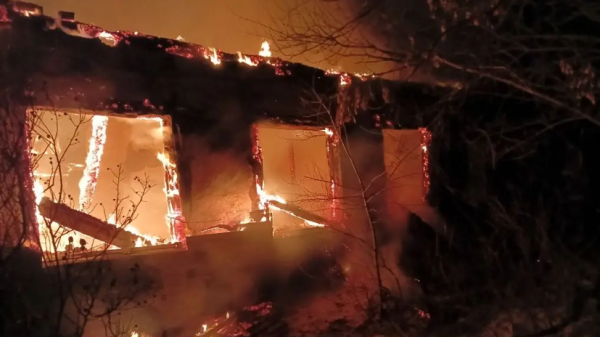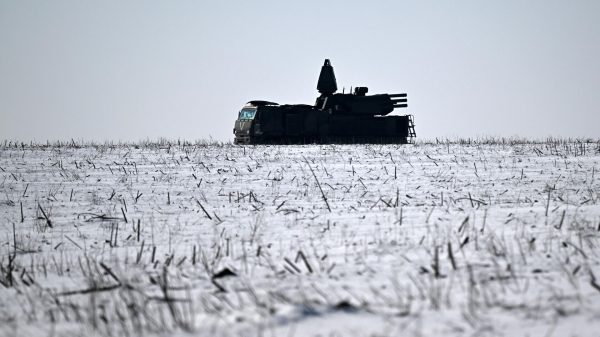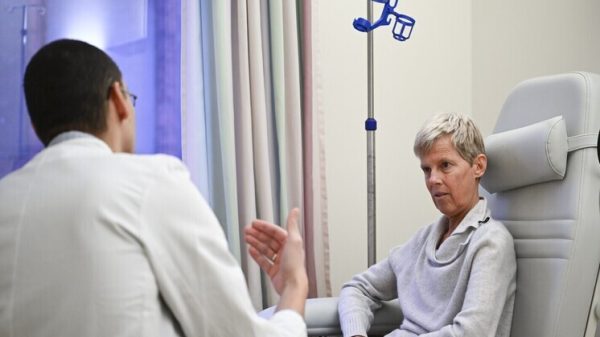
Thousands of people who fled the fire that destroyed the infamous Moria refugee camp in Lesbos, Greece, last month are living in dire and unsanitary conditions in a temporary settlement with little access to water or basic sanitation.
Just over 7,500 people are now living in tents among the rubble and dust of a former shooting range in an informal settlement that has become known as “Moria 2.0”.
‘Moria no more’: the refugees left to sleep in car parks after escaping blaze
Read more
The camp, located at the edge of the sea, is exposed to the elements. Residents are allowed to leave the camp between 8am–8pm every day apart from Sunday. People wash their clothes and bodies in the sea because there is not enough running water. In the past week more than 1,600 recognised refugees have been moved to less crowded camps and hotels on the mainland, where they have said conditions are better.
Semin, a 23-year-old economics graduate from a Kabul university, said she cried when she found out she wouldn’t be moving to the mainland.
“My mother tries not to eat a lot of food because she doesn’t want to go to the toilet,” she said, and explained that some people were walking to a nearby town to use toilets in cafes instead of using camp toilets.
“This camp is not good for children or old people,” she added. She said that the electricity, which is powered by generators, didn’t always work.

A spokesperson for the Greek ministry of migration said that there were 400 toilets in the camp and that these were cleaned every day.
Shad Mohammed, a refugee from Afghanistan, said he was having to find ways to cook his own food using salvaged pots and pans from Moria because his children could not eat the food in the new camp.
Two other remaining camps on the island, Pikpa and Kara Tepe, which are both for vulnerable people, are now facing closure. Kara Tepe, which has a capacity for around 1,000 people, will be closed by the end of the year. Pikpa, a small brightly-coloured camp with notably good conditions, faces closure by authorities next week.
Carmen Dupont from Lesvos Solidarity, an NGO operating in Pikpa, said she had been shocked to hear news of the closures. “At a time when we hear from the European Union: ‘no more Moria’, a new Moria has been built and the conditions – as far as we hear from the people inside – are worse than at the previous camp.”
Dupont said the situation for those stuck on Lesbos and other Greek islands seemed to be deteriorating. “There seems to be a very clear agenda linked to the migration pact and the European Union’s direction, which is of containment. Keeping people trapped and locked in inhumane camps in hellish conditions and at the same time, erasing and closing the dignified shelters that exist.
“It is a very clear agenda that we are resisting because Pikpa is much more than a place. We are defending the idea and values of solidarity, equality, dignity and connection.”

Médecins Sans Frontières have also expressed concerns about the new camp. “We know that the camp has very minimal services,” said Marco Sandrone, the MSF project coordinator on Lesbos. “[The closure of Kara Tepe and Pikpa] is extremely concerning, because the lack of appropriate accommodation for vulnerable categories has always been an issue.”
Meanwhile, as residents at “Moria 2.0” tried to make the best of the situation, the community at Pikpa were planning to spend their final days lobbying to save the space. Last week a group of children from the camp spent the day painting a mural reading: “Save Pikpa. Love you Pikpa.”
A spokesperson for the ministry of migration said residents of Pikpa and Kara Tepe would have their asylum claims “accelerated”. A successful asylum claim would mean they would be moved to the mainland while a rejection would result in them being detained and – pending appeal – deported.






















































Свежие комментарии